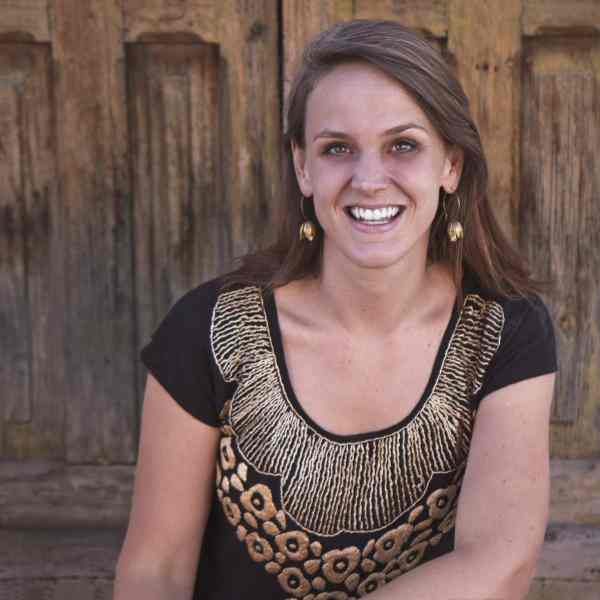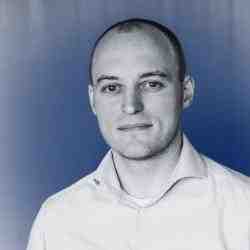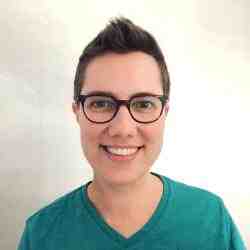Introduction
Mexico’s vast healthcare system is chronically underutilized and plagued by inequalities. Suzanne champions access to health by turning individual healthcare experiences into powerful catalysts for systemic change. Leveraging data from her medical facilitators, she drives law and policy changes and fosters accountability within public health institutions.
The New Idea
Suzanne improves the responsiveness of the healthcare system to meet the needs of the most excluded citizens. To do this, she unlocks new flows of information that strengthen and accelerate the link between patient experience and systems change. She has introduced the role of acompañantes (“companions”), medical facilitators who empower patients and their families to navigate the complexities of the healthcare system, identifying systemic barriers in the process. Suzanne uses these real-time insights to prototype solutions through her organization Ixchel, and then collaborates with authorities to swiftly institutionalize the new approach.
People contact Ixchel’s companions through a hotline to consult on their case. After completing a needs assessment, Ixchel shares medical or logistical information, connects users with relevant institutions or organizations, or maps a deeper support journey. While the information service works as an initial touchpoint and helps track patterns in information needs, the longer support journeys are the heart of Suzanne’s approach. These cases involve a team of medical and logistical facilitators, partners within public health services and other government institutions, and CSOs, focusing on people in highly vulnerable situations with complex needs. During this process, the team monitors institutional barriers and then uses this data to inform legal or policy solutions.
Ixchel then works with local public hospitals to demonstrate the prototype and collaborates with state or federal government entities to install the model permanently in the public health system. If the solution already exists but is not implemented, Ixchel pursues litigation and documents the enforceability mechanisms so other patients, patient groups, or CSOs can follow the precedent. Rather than operating outside of Mexico’s existing health infrastructure, Suzanne focuses on enhancing patients’ experience, improving information, and building accountability to encourage usage.
The first solution emerging from Suzanne’s approach is the Intercultural Communication Management Model (GCI in Spanish), which introduced Indigenous language interpreters into hospitals. While other CSO and government initiatives have sought to implement interpretation support, it is not legally required and currently functions at hospitals’ discretion. There is no training standard nor regulation, and interpreters face poor working conditions. In contrast, the GCI Model aims to establish permanent roles for interpreters. Starting with a pilot in 1 hospital in Chiapas in 2021, the program was replicated in 6 hospitals and is growing to two more states. Thanks to this success, state and national reforms to enshrine the right to linguistic access for Indigenous persons are close to being approved.
Suzanne’s accompaniment model is adaptable and could potentially be implemented in various regional contexts. Furthermore, the anticipated legal recognition of interpreters as permanent fixtures in hospitals not only solidifies this practice but also paves the way for Suzanne to advocate similarly transformative changes for other critical healthcare issues, such as dialysis and dignified death care, areas she is already beginning to address.
The Problem
Healthcare is officially recognized as a universal right in Mexico’s constitution; however, the reality starkly contrasts with this ideal. Public healthcare utilization remains disappointingly low, with only 34% to 44% of people resolving their health issues through public services between 2018 and 2022. The 2022 National Health and Nutrition Survey indicated that although 86% of individuals experiencing health problems sought care, only 44% accessed public health services, with a more pronounced disparity in rural areas. Of those who did not use public services, 71% reported access-related factors as the main barriers (availability, distance, and a lack of services needed). Private health expenditures constituted 46.2% of total health spending in 2021, illustrating the hefty out-of-pocket costs many Mexicans incur.
Unequal access to health reflects and magnifies existing disparities, leading to the poorest health outcomes among women, low-income populations, those with lesser education, indigenous communities, and rural communities. A telling statistic is the increase in individuals lacking access to health services, which escalated from 16.2% in 2018 to 28.2% in 2020, alongside a rise in catastrophic health expenditures affecting predominantly the poorest households.
One challenge is significant logistical barriers. For instance, in 2020, while the average travel time to healthcare facilities was 31 minutes, more specialized and emergency care often required substantially longer travel times, with 13.7% of the population needing over three hours to reach tertiary care facilities. Moreover, waiting times, which can extend significantly depending on the institution and the level of specialization, pose another critical barrier. In 2021, waiting times in some institutions could stretch between 35 and 45 minutes. Consequently, 56% of the population who sought healthcare services opted for the private sector, often in offices adjacent to pharmacies known as Consultorios Adjuntos a Farmacias (CAF), which have surged in popularity for providing first-contact health services.
Additionally, entrenched racism and discrimination within the public system, a lack of appreciation for indigenous health conceptions, and the bureaucratic complexity of navigating healthcare further obstruct access. The lack of culturally competent services, including adequate interpretation for indigenous languages, not only perpetuates but intensifies discriminatory practices within healthcare settings, deterring the use of public health services and reinforcing systemic inequities.
The benefits of medical facilitators have been demonstrated in other contexts, but no such role exists in Mexico currently. With an upcoming political transition in the country, there is an opportune moment to influence health policy. Politicians can leverage support for Suzanne’s initiatives to demonstrate commitment to expanding healthcare, particularly for indigenous and underserved communities, aligning political motivations with substantive health system reforms.
The Strategy
Suzanne’s model has a dual focus: providing direct medical advisory and logistical support to individuals to address immediate health needs, which in turn helps identify obstacles, deficiencies, and improvement opportunities in the healthcare system. Introducing a new role and flow of information enables Suzanne to turn improvements in individual experiences of healthcare into benefits for all citizens experiencing similar barriers, as the GCI Model illustrates.
Suzanne's medical-logistical accompaniment starts with a free hotline, available by phone or WhatsApp. In these routine interactions, a team of doctors and psychologists provide medical advice using culturally sensitive approaches that minimize unnecessary medication. They also assist individuals who require more specialized hospital care, helping them navigate the healthcare system and offering logistical support. This model provides essential emotional support and information, enhancing patients' and their families’ autonomy and agency in managing their healthcare effectively. Accompaniments have already impacted +15,000 patients directly and indirectly benefiting +45,000 more, as family and community members who support the patient gain health information and learn to navigate the public health system themselves.
More broadly, the hotline generates critical data to track common issues, which can signal a more systemic problem. It also allows Suzanne’s organization, Ixchel, to source strategic cases, which are more complex scenarios that require medical facilitators' physical presence and long-term engagement. These intensive cases deepen Ixchel’s understanding of the system’s gaps and open opportunities for institutional change.
Throughout the complex cases, companions feed back information about friction points in the patient’s journey. This information allows Ixchel to map whether it is an individual issue or more common experience, thereby identifying critical interventions in the system that could have large-scale impact. Armed with these insights, Suzanne and her team design solutions that could be adopted by institutions by setting new standards or through new laws and policies. By combining deep community engagement with strong relationships with hospitals and authorities, Ixchel functions as a bridge between the grassroots and institutional levels that accelerates changes and improves efficacy.
Where laws or policies already exist, but are inadequately implemented, Suzanne and her team pursue available enforceability mechanisms or, as a last resort, strategic litigation. These cases serve to both set a precedent and increase patients’ awareness of available accountability channels. Suzanne aims to help more citizens harness the resources that are available in the system: Mexico already has significant health policies on paper, but uptake is low due to lack of information. This constructive approach has been key to her success, as often authorities are eager to collaborate to implement underused support.
Ixchel’s services are promoted through partnerships with existing citizen groups. Involving existing support networks in the accompaniment process helps address power imbalances between patients and institutions, facilitating case resolution. These groups include trade unions, neighborhood associations, student groups, and organizations of coffee growers and women.
The Intercultural Communication Management model is Suzanne’s “proof of concept.” After accompaniment experiences during the COVID-19 pandemic highlighted a severe lack of Indigenous language interpreters in hospitals, Ixchel understood the need for regulation and a different approach that extended beyond translation to address broader issues of diversity, equity, inclusion, and cultural competence. Suzanne and her team developed a training approach that seeks to set a new standard for interpretation services in healthcare, blending medical expertise with human rights, interculturality, dignified treatment, gender, and other skills that enhance service quality. Ixchel recruited, trained, and deployed a pilot group of interpreters from indigenous communities who are bilingual in Spanish and their native languages. They assist in various hospital areas like emergency reports, intensive care, and administrative processes, ensuring clear communication about health conditions, diagnostics, and therapeutic options.
After positive results, the program expanded to six hospitals in the state of Chiapas. The presence of interpreters has notably improved the quality of healthcare for Indigenous patients and led medical staff to recognize the crucial nature of these roles. When an administrator wanted to cut the program due to political interests, the hospital’s personnel successfully advocated for maintaining and expanding it. The state government also convened a working group to draft a bill for creating permanent roles for interpreters within local public health institutions, involving representatives from four public institutions, the state congress, and CSOs, with Ixchel as lead advisor.
Suzanne’s efforts to bridge direct patient care with policy reform are evident in her advocacy for legal changes that institutionalize the role of health interpreters and integrate them into the national health budget. Ixchel submitted a proposal enshrining the constitutional right to interpretation in healthcare, collaborating with Congress in Chiapas and on a federal level, as well as institutions like the National Institute of Indigenous Languages (INALI) and the National Council to Prevent Discrimination (CONAPRED). Another bill under review would make interpretation services mandatory for hospitals and health institutions in areas with significant Indigenous populations. Although these changes are not official yet, Ixchel has already started collaborating with key health authorities to put guidelines and processes in place for hiring, training, and deploying interpreters nationwide. Looking ahead, Suzanne aims to further institutionalize the model by establishing a certification institute for health interpreters using the GCI’s approach.
The GCI’s success showcases the potential of Suzanne’s model to both address immediate healthcare needs and drive long-term changes across Mexico’s healthcare landscape. She already has other critical health issues in the pipeline through Ixchel's accompaniment work, such as hemodialysis and dignified death care. Additionally, her approach has garnered international interest, such as from Canada, for its potential adaptability to Indigenous and migrant populations.
Looking ahead, Suzanne plans to develop a service package for companies and public institutions to support health access for their employees. The package would include workshops for health literacy, advisory for Human Resources teams, and medical-logistical accompaniment services. This strategy would not only open a more sustainable funding stream, but also enable Suzanne to significantly expand Ixchel’s reach. In Mexico, every company must register their employees for social security; however, usage rates are abysmal. Suzanne aims to install capacity within companies to adequately advise employees, so more citizens will have the information and support needed to exercise their health rights.
The Person
Suzanne's formative years in Amsterdam, where she was born into a family of doctors and social activists, profoundly shaped her career trajectory and personal philosophy. Raised in an environment of social engagement, with her mother being one of the first female mayors, she grew up with a keen awareness of societal inequalities. This early exposure to the challenges of fairness and equality deeply influenced her decision to pursue medicine, driven by a desire to impact people's lives positively.
During her medical studies, Suzanne's commitment to social change was tested when she volunteered at an orphanage for children with HIV/AIDS in the Dominican Republic. The transient nature of the NGO's work there, constantly rotating volunteers without building sustainable solutions. left her questioning the ethics of short-term volunteer efforts. This experience, coupled with extensive traveling, exposed her to the recurring inefficiencies and failures in the interactions between NGOs, governments, and the communities they serve, particularly in healthcare systems across various countries.
Her deepening disillusionment with the conventional approach to medicine and international aid led Suzanne to join local political, advocacy movements in Amsterdam. This period helped her realize the importance of understanding and addressing the underlying socio-cultural aspects of healthcare. It was during her rotations, including a significant stint in rural Tanzania, that Suzanne truly appreciated the broader context of medicine, beyond diagnoses to understanding patients' stories and the socio-cultural dynamics affecting their health. Here, she also contributed significantly by developing and training staff on a preeclampsia protocol, providing a valuable resource to the community.
Suzanne's career with Doctors Without Borders started as a hopeful avenue to apply her skills meaningfully but soon confronted her with the limitations of traditional medical missions. Her assignment in Bangladesh, highlighted the pitfalls of imposing external solutions without genuine engagement with local communities. However, Suzanne's volunteer internship in Chiapas at a hospital run by nuns solidified her commitment to intercultural medicine. At this hospital, patients could compensate for their care with labor or crops, and treatments were tailored to fit the local indigenous context. This experience reinforced her belief in the vital role of interpreters and the importance of culturally sensitive healthcare.
Her experiences in Chiapas, especially in public hospitals fraught with racism, sexism, and resource constraints, steered her towards deeper involvement in local feminist movements and the fight for reproductive rights. This involvement profoundly influenced her perspective on medical practice, emphasizing the need for an accompaniment model in healthcare that promotes patient autonomy and systemic change. This realization led her to pursue a PhD focused on this model and to co-found the Network of Doctors for the Right to Decide, which aims to bridge the gap between medical professionals and feminist activists to ensure accessible and safe abortions across Mexico. Through Ixchel, she seeks to replicate these principles for public health as a whole.
Today, Suzanne continues to challenge the status quo in Mexican healthcare, advocating for a system that not only addresses immediate medical needs but also strives for equity, understanding, and respect for all, especially the marginalized indigenous communities. Her journey from a disillusioned medical student to a passionate advocate for systemic healthcare reform in Mexico illustrates her unwavering commitment to transforming healthcare from the ground up.




